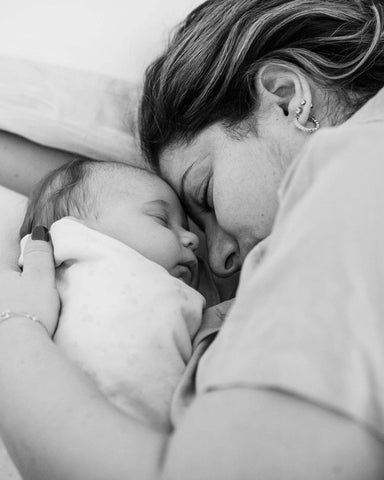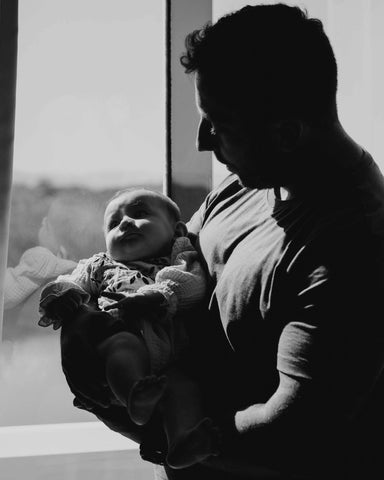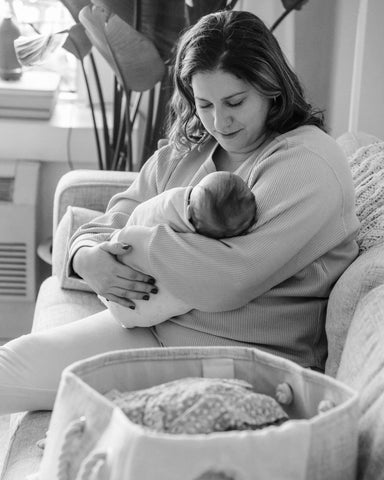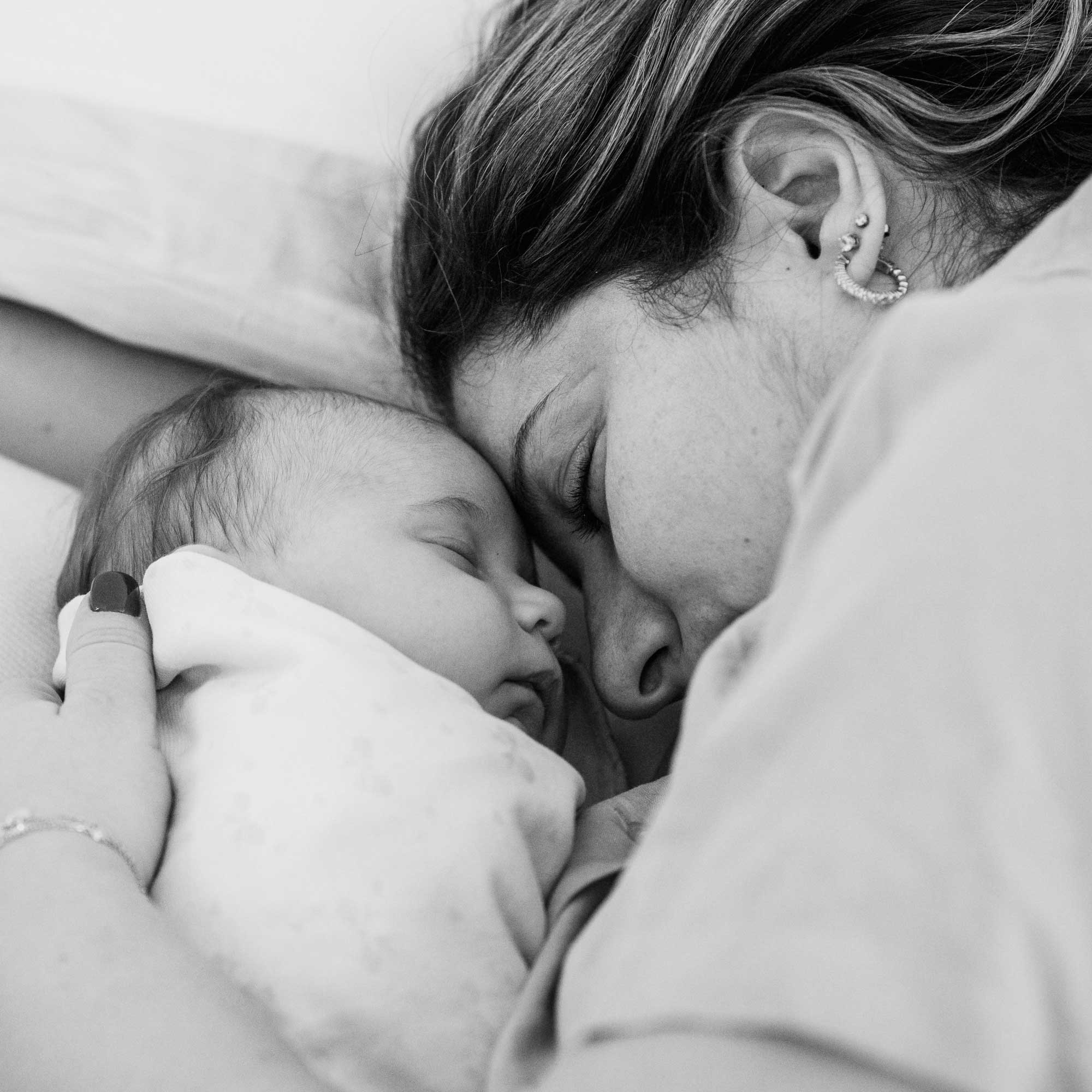Postpartum is everything, all at once—messy, raw, beautiful, relentless. It isn’t always pretty or easy. In fact, one in eight women experience postpartum depression (PPD) after giving birth. Still, for many parents experiencing it (including fathers, nonbiological mothers, and adoptive parents), the subject feels taboo. If you or someone you love might be experiencing PPD, know that you’re not alone and there is help available to you.
Here, we’ll walk you through symptoms of postpartum depression, how it differs from baby blues, and resources for support—but we always encourage you to reach out to your primary care provider, friends, and family. There is nothing you have done wrong, and you are worthy of support.

Baby blues vs. postpartum depression
Throughout pregnancy, a woman’s body produces extra estrogen and progesterone to support her health and baby’s health. Within three days of giving birth, those hormones return to their typical levels. This drop is the biggest, most rapid hormone change a woman experiences in her life—and it’s why the majority of women will have what’s known as the “baby blues” during the first few weeks after having a baby. Those hormone changes, on top of getting very little sleep, can cause mothers to feel weepy, sad, and lonely after giving birth. The symptoms of the baby blues are less severe than those of PPD however, and they typically last for a few weeks at most before going away on their own.
On the other hand, postpartum depression lasts many weeks or months and requires treatment. It can affect any mother regardless of race, age, income, pregnancy experience, or number of babies. PPD can cause emotional and physical distress that makes it difficult for a mother to adequately care for herself, her children, and family.

Symptoms of postpartum depression
The warning signs of PPD look different for anyone, but they can include:
- Feeling sad, anxious, or empty for a prolonged period of time
- Feelings of guilt, shame, or hopelessness
- Inability to sleep, sleeping too much, difficulty falling or staying asleep
- Eating much more or less than you usually do
- Withdrawing from loved ones
- Not feeling connected to your baby or fear of being left alone with your baby
- Irritability, anger, or restlessness
- Loss of interest or pleasure in things you once enjoyed
- Constant worrying or panic
- Thoughts of hurting yourself or your baby
*If you are in suicidal crisis, please call or text 988 or visit the 988 Suicide & Crisis Lifeline

What to do if you think you have postpartum depression
If you resonate with any of the symptoms outlined above, there is help for you. What you’re experiencing isn’t shameful or wrong, and it isn’t your fault. Start by reaching out to your medical provider so that they can connect with local resources for help and treatment.
Talking with loved ones about what you’re feeling can create opportunities for them to support you in practical ways such as watching baby while you go to the doctor or relieving you from tasks that feel overwhelming.
Remember, there is only courage in asking for help—and we’re rooting for you every step of the way.
This list of additional resources for postpartum depression may be helpful to you, too:
1. Postpartum Support International provides resources such as peer mentors for moms and dads, online support groups, and local resource directories.
2. Postpartum Health Alliance offers free screening tests, as well as a warmline with trained volunteers.
3. Office of Women’s Health offers a variety of resources for finding help.
4. Postpartum Progress shares stories of parents who have experienced PPD, answers to FAQ, and support resources.



